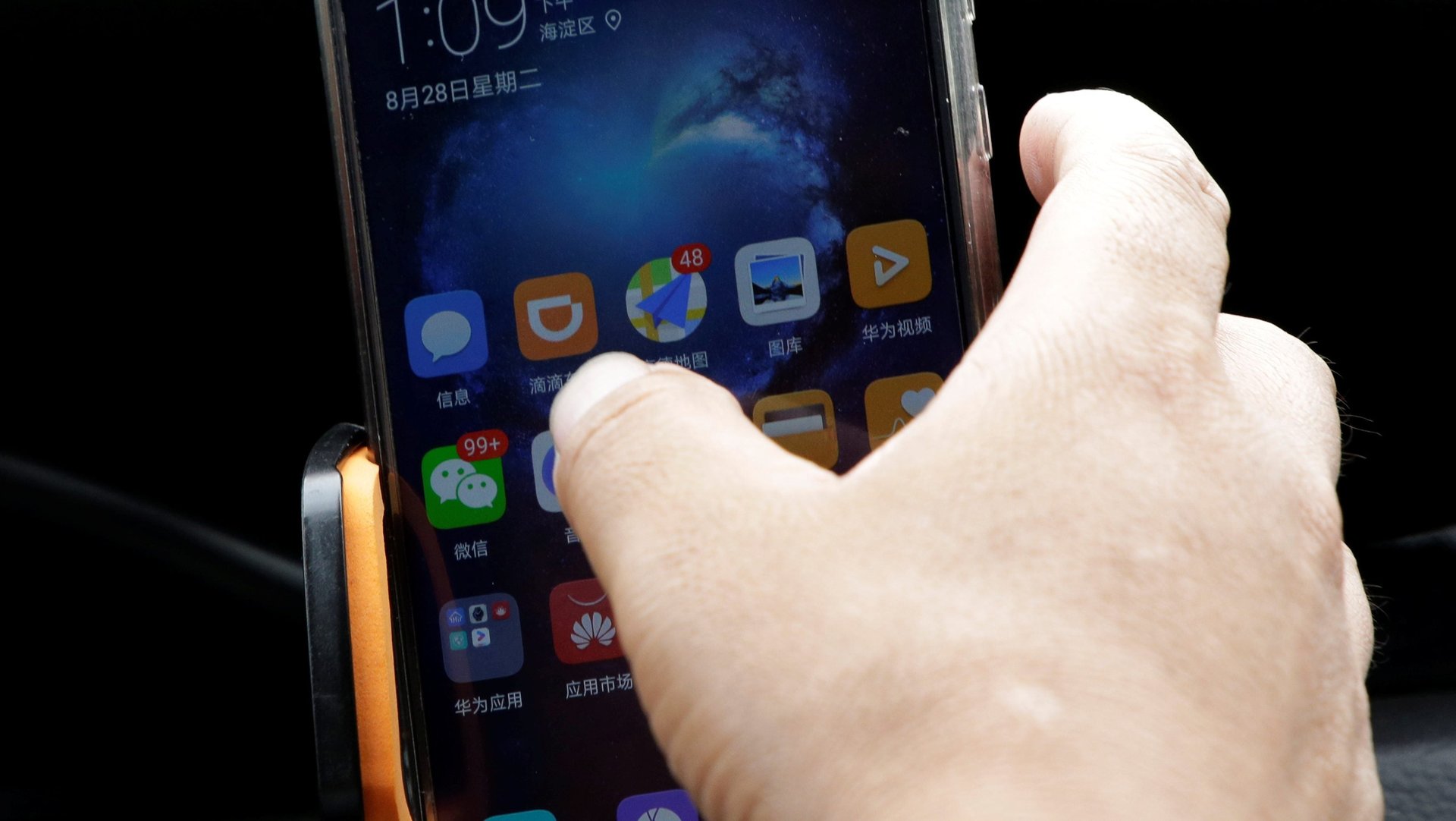China’s ride-hailing giant wants to dominate electric-vehicle charging—so does one of its top backers
China’s growing electric vehicle market can’t have enough charging stations—and China’s biggest ride-hailing giant Didi Chuxing could end up competing with its backer, Ant Financial, to get users to them.


China’s growing electric vehicle market can’t have enough charging stations—and China’s biggest ride-hailing giant Didi Chuxing could end up competing with its backer, Ant Financial, to get users to them.
Last week, Alipay, the all-encompassing payments app (Quartz member exclusive) operated by fintech behemoth Ant Financial, rolled out a feature (link in Chinese) called “Ant Charging” for its 700 million users. The feature, a sort of app within the main app, allows users to find the nearest station from nine EV charging companies without downloading separate apps for them. Ant Charging list available charging stations, the price of charging per watt, and distance.
The feature puts it in direct competition with Didi, which launched its Xiaoju Charge app in January 2018. Ant Financial participated in a $7.3 billion investment round for Didi in 2016. Didi’s Xiaoju unit covers a wide range of services (link in Chinese) including renting vehicles, charging, and vehicle maintenance.
On the face of it, the market is large enough for both Didi and Alipay—China’s electric vehicle market is still growing, though at a slower pace compared with previous years. While China has around 3 million new energy vehicles, including battery electric and plug-in hybrids, it only had around 770,000 charging stations as of 2018, data from industry group China Electric Vehicle Charging Infrastructure Promotion Alliance (EVCIPA) showed.
Working with China’s largest ride-hailing firm makes perfect sense—especially as China’s encouraging electrified ride-sharing (link in Chinese). Shenzhen, headquarters of the world’s largest EV maker BYD (Quartz membership), has since last August only given ride-hailing licenses to battery EVs. Didi’s bank of data on drivers’ charging habits and traveling routes might seem to make it the perfect partner for charging companies.
Yet out of the nine operators on Ant Charging, three major EV charging service companies—Teld, Starcharge, and iCharge—earlier this year quit (link in Chinese) Xiaoju. Together, these three charging stations operate more than 220,000 charging stations (link in Chinese) nationwide, EVCIPA data in May showed.
Didi’s Xiaoju app doesn’t only feature other operators’ stations, like Ant Charging—it also features stations from the EV charging network Didi’s been developing across the country since 2017. The three companies weren’t happy that Xiaoju directs EVs to Xiaoju’s own stations over those of other operators. Xiaoju disputes that it favors its own stations in directing drivers, local newspaper Southern Metropolis Daily (link in Chinese) reported in April.
The three then turned to Alipay, which says the nine operators included in Ant Charging cover 70% of the public charging stations (link in Chinese) nationwide.
Alipay’s venture into EV charging fits Ant Financial’s growing roadmap for the EV market. This month, the fintech giant formed a joint venture with battery maker CATL (Quartz membership) and bike-sharing company Hellobike. The three are tapping into the growing electric two-wheelers business. Chinese e-commerce giant Alibaba, which has a 33% stake in Ant, is also an early-backer of China’s EV maker Xpeng Motors, which has recently ventured into ride-sharing.
Looking for more in-depth coverage? Sign up to become a member and read more in-depth coverage of China’s electric-car boom in our field guide.